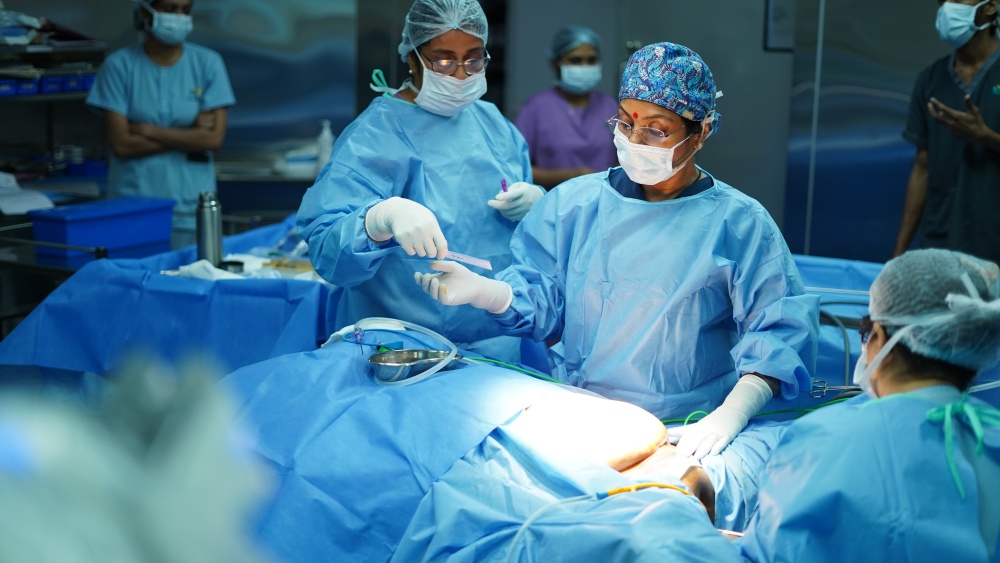
Robotic gynaecology surgery is revolutionizing women’s healthcare in India, offering minimally invasive solutions for complex conditions. Whether you’re considering a robotic-assisted procedure for fibroids, endometriosis, or hysterectomy, selecting the right specialist is crucial. But whom should you consult for such a procedure? Let’s explore the key factors that determine the right expert for your robotic gynaecology surgery in the Indian context.
1. Gynecologic Surgeons with Robotic Surgery Expertise
When seeking a specialist, the foremost criterion is their expertise in robotic-assisted gynaecologic procedures. These surgeons undergo specialized training beyond conventional laparoscopic methods, mastering the use of robotic systems such as the da Vinci Surgical System. Look for a doctor with extensive experience in robotic gynaecological procedures, as their skillset directly impacts the surgery’s success and recovery time.
2. Board-Certified and Fellowship-Trained Specialists
In India, look for a gynaecologic surgeon certified by the Medical Council of India (MCI) or the National Medical Commission (NMC). Many leading specialists have completed fellowships in minimally invasive or robotic surgery at reputed institutions like AIIMS, Apollo Hospitals, or global centers of excellence. Such certifications ensure that the doctor has met high standards in education and practice.
3. Hospital Affiliation and Surgical Center Accreditation
The hospital where the procedure is performed plays a critical role in your safety and overall experience. In India, opt for a surgeon affiliated with leading hospitals known for robotic surgery, such as Apollo Hospitals, Fortis Healthcare, Medanta, or Max Healthcare. Ensure that the hospital is accredited by NABH (National Accreditation Board for Hospitals & Healthcare Providers) or JCI (Joint Commission International) for high standards of patient care.
4. Experience with Your Specific Condition
Different gynaecologic conditions require different surgical approaches. If you need robotic surgery for fibroids, endometriosis, or prolapse, ensure that your surgeon has significant experience treating your specific condition. Many hospitals in India provide case studies and success rates, so reviewing these can help in decision-making.
5. Innovative and Patient-Centric Approach
A great robotic surgeon is not only skilled but also compassionate. Choose a doctor who prioritizes patient education, explains the procedure thoroughly, and tailors the treatment to your unique needs. A patient-centric approach ensures that you are comfortable and well-informed throughout the surgical journey.
6. Availability for Consultation and Post-Operative Care
Robotic surgery is just one part of your treatment. The pre-surgical evaluation and post-operative care are equally important. Many top hospitals in India provide dedicated robotic surgery departments with follow-up care. Select a surgeon who is accessible for consultations, follow-ups, and any post-surgical concerns to ensure a smooth recovery.
7. Technology and Infrastructure Support
The success of robotic surgery depends on the technology available at the healthcare facility. India’s top hospitals have invested in advanced robotic systems like the da Vinci Surgical System and offer specialized robotic surgery units. Confirm that the hospital you choose has the latest robotic surgical equipment and a well-trained surgical team.
8. Recommendations and Reviews
Patient testimonials and reviews provide valuable insights into a surgeon’s expertise and bedside manner. In India, you can check hospital websites, Practo, Lybrate, or Google Reviews for feedback. Asking for recommendations from your primary gynaecologist or previous patients can also help you make an informed choice.
Why You Should Consider Dr. Urmila Soman
Dr. Urmila Soman is a pioneer in Minimally Invasive Gynaecologic procedures and leads the Centre for Minimally Invasive Gynaecology (Robotic & Laparoscopic Surgery) at Apollo Adlux Hospital. With extensive experience in robotic-assisted gynaecologic surgeries, she has successfully treated complex cases involving fibroids, endometriosis, and hysterectomies. Dr. Urmila’s patient-centric approach, combined with state-of-the-art technology and international training, ensures the highest standards of care. Her expertise and dedication make her a top choice for women seeking safe and effective robotic gynaecological surgery in India.
Conclusion
Choosing the right specialist for robotic gynaecology surgery in India requires careful consideration. Look for a board-certified, fellowship-trained surgeon with proven experience, affiliations with top hospitals, and a patient-focused approach. By consulting a highly qualified expert, you ensure a safer procedure, minimal complications, and a quicker recovery. If you are considering robotic-assisted gynaecologic surgery in India, make an informed decision by evaluating all these factors before selecting your surgeon.




